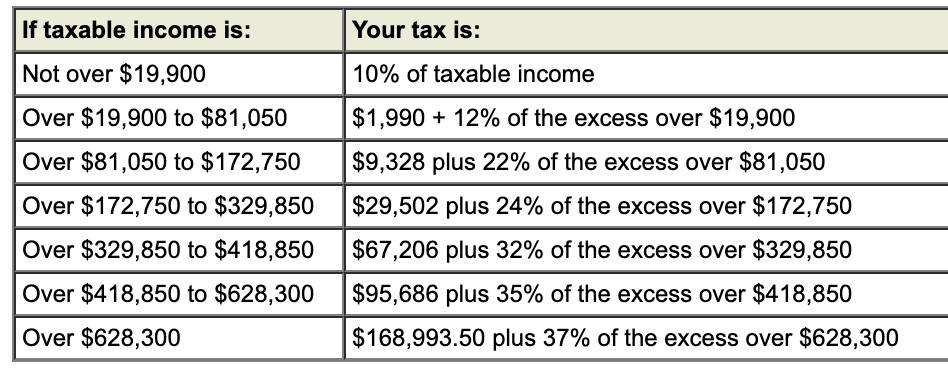
Subscribe to get insights from our trusted experts delivered straight to your inbox. Stay informed on the tax policies impacting you. S and personal exemptions to the federal tax code, while others set their own or offer none at all.

It was nearly doubled for all classes of filers by the 2017 Tax Cuts and Jobs Act as an incentive for taxpayers not to itemize deductions when filing their federal income taxes. Some states tie their standard deduction The standard deduction reduces a taxpayer’s taxable income by a set amount determined by the government. It is sometimes referred to as a “ hidden tax,” as it leaves taxpayers less well-off due to higher costs and “ bracket creep,” while increasing the government’s spending power. The same paycheck covers less goods, services, and bills. S, exemptions, and deductions for inflation Inflation is when the general price of goods and services increases across the economy, reducing the purchasing power of a currency and the value of certain assets. There are seven federal individual income tax brackets the federal corporate income tax system is flat. In a progressive individual or corporate income tax system, rates rise as income increases. ” Some states index tax bracket A tax bracket is the range of incomes taxed at given rates, which typically differ depending on filing status.

A marriage penalty typically occurs when two individuals with similar incomes marry this is true for both high- and low-income couples. Some states double their single-bracket widths for married filers to avoid a “ marriage penalty A marriage penalty is when a household’s overall tax bill increases due to a couple marrying and filing taxes jointly. States’ approaches to income taxes vary in other details as well.Hawaii has 12 brackets, the most in the country. Conversely, 32 states and the District of Columbia levy graduated-rate income taxes, with the number of brackets varying widely by state. For both individuals and corporations, taxable income differs from-and is less than-gross income. Of those states taxing wages, nine have single-rate tax structures, with one rate applying to all taxable income Taxable income is the amount of income subject to tax, after deductions and exemptions.Eight states levy no individual income tax at all. Forty-one tax wage and salary income, while one state-New Hampshire-exclusively taxes dividend and interest income. Forty-two states levy individual income taxes.

Though barely 100 years old, individual income taxes are the largest source of tax revenue in the U.S.Įs are a major source of state government revenue, accounting for 38 percent of state tax A tax is a mandatory payment or charge collected by local, state, and national governments from individuals or businesses to cover the costs of general government services, goods, and activities.Ĭollections in fiscal year 2018, the latest year of data available. The Federal Income Tax was established in 1913 with the ratification of the 16th Amendment. imposes a progressive income tax where rates increase with income. Individual income tax An individual income tax (or personal income tax) is levied on the wages, salaries, investments, or other forms of income an individual or household earns.


 0 kommentar(er)
0 kommentar(er)
